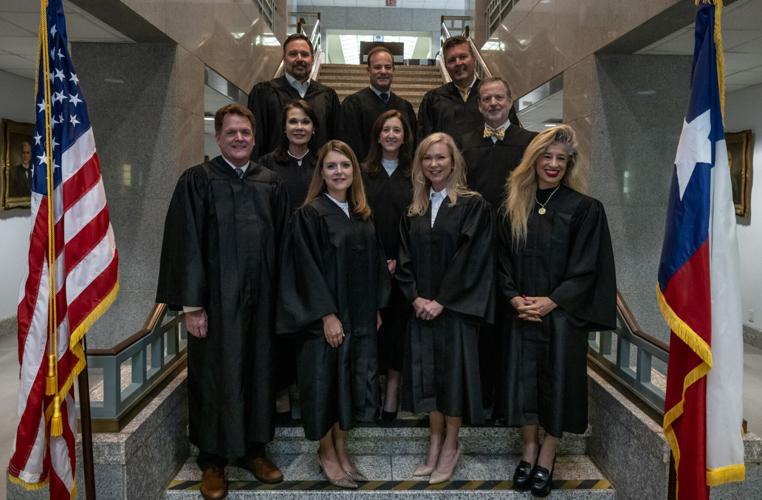
The judges on the Texas Business Court
HOUSTON – For a little over a year now, the Texas Business Court has been, well, open for business, drawing in hundreds of cases from the state’s largest cities.
Up and running since Sept. 1, 2024, the Texas Business Court handles complex business-to-business litigation – offering a venue for corporations that competes with Delaware’s.

Parsley
“Barely a year after opening its doors, the Texas Business Court - the first of its kind in Texas - is exceeding expectations,” said Lee Parsley, president of Texans for Lawsuit Reform. “With more than 220 cases filed across the state’s five largest cities, the Texas Business Court is quickly becoming a focal point for resolving complex corporate disputes.”
The lion’s share of cases have come from Houston and Dallas, while Texas law firms such as Jackson Walker, Beck Redden and Lynn Pinker Hurst & Schwegmann are becoming common names at the Texas Business Court, according to a Bloomberg Law article.
TLR helped spearhead the creation of the Texas Business Court during the 2023 legislative session, a significant investment in Texas’s economic growth and development, Parsley said.
This past legislative session TLR was instrumental in the passage of two bills aimed at enhancing the specialized court.
“During the recent 2025 Texas Legislative Session, TLR advocated for passage of two bipartisan pieces of legislation to further solidify Texas’s sterling reputation in the business world,” Parsley said. One expanded the Business Court’s jurisdiction, while the other enhanced Texas’s corporate governance laws.
“These TLR-supported bills, House Bill 40 and Senate Bill 29, are helping to position the Lone Star State as the preeminent jurisdiction for relocation and reincorporations.”
SB 29 introduced a series of corporate reforms that will make Texas the preferred destination for corporate relocation and reincorporation by codifying the business judgment rule and allowing corporations to establish a minimum ownership threshold before a shareholder or group of shareholders can pursue a derivative claim, among other provisions.
Sponsored by Rep. Brooks Landgraf, HB 40 improves the court by:
* Deleting the provision abolishing the Business Court’s divisions in rural area;
* Reducing the amount-in-controversy requirement for filing a lawsuit in or transferring a case to the Business Court, from $10 million to $5 million;
* Including large insurance disputes (excluding first-party claims) in the Business Court’s jurisdiction;
* Clarifying the Business Court’s “supplemental jurisdiction; and
* Allowing companies to designate the Business Court in their contracts as the exclusive venue for dispute resolution.










